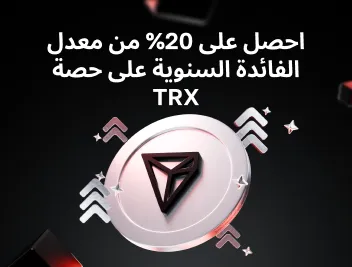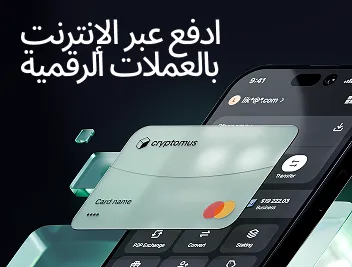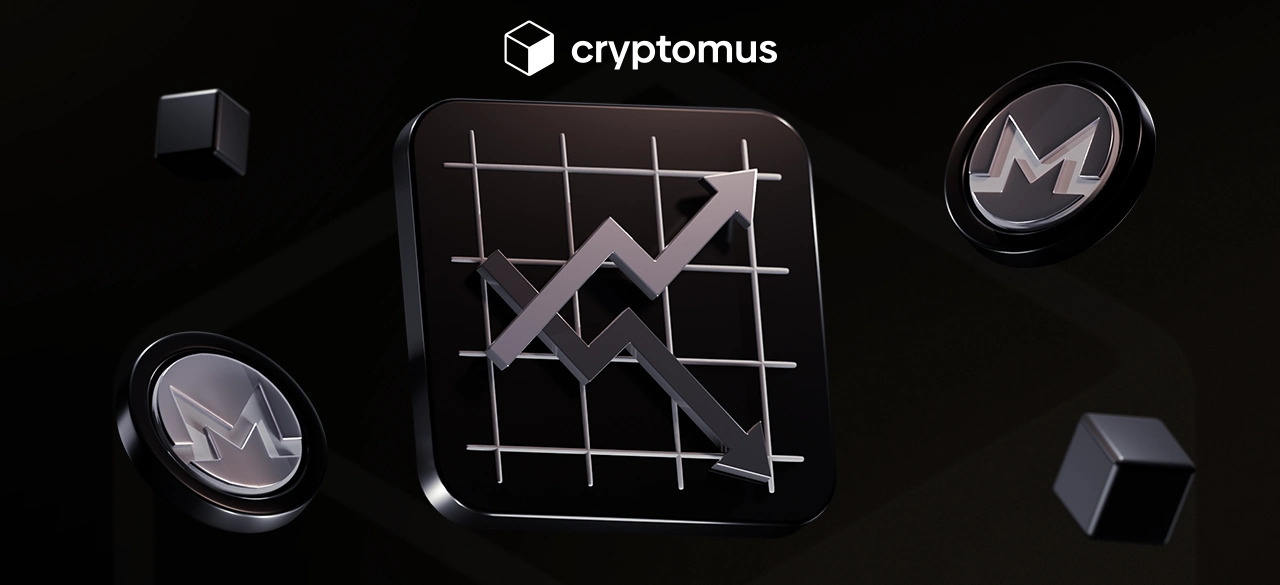
هل المحافظ الرقمية آمنة؟ كيف تحمي عملك وأموالك الشخصية
جدول المحتويات
مع تزايد شعبية المحافظ الرقمية، هناك سؤال واحد هو: "هل المحافظ الرقمية آمنة؟". نظرًا لأن المزيد من الأشخاص يعتمدون على المحافظ الرقمية لإدارة شؤونهم المالية، فمن الضروري فهم تدابير السلامة المرتبطة بهذه المحافظ لحماية أعمالك وأموالك الشخصية.
أهمية أمان المحفظة الرقمية
يعد أمان المحفظة الرقمية أمرًا بالغ الأهمية لضمان سلامة معاملاتك المالية وحماية أعمالك وأموالك الشخصية. مع تقدم التكنولوجيا، تتقدم أيضًا التقنيات التي يستخدمها مجرمو الإنترنت. من الضروري اختيار محفظة آمنة توفر ميزات أمان قوية لحماية معلوماتك الحساسة وأصولك المالية.
ما هي المحافظ الرقمية وكيف تعمل؟
المحافظ الرقمية، والمعروفة أيضًا باسم المحافظ الإلكترونية أو المحافظ المحمولة، هي منصات افتراضية تمكن المستخدمين من تخزين معلوماتهم المالية وإدارتها بشكل آمن. يمكن لهذه المحافظ أن تحتوي على أشكال مختلفة من الدفع، بما في ذلك بطاقات الائتمان وبطاقات الخصم وحتى العملات المشفرة. تعمل المحافظ الرقمية من خلال تخزين معلومات الدفع الخاصة بك بشكل آمن وتسمح لك بإجراء المعاملات بسهولة من خلال جهازك المحمول أو الكمبيوتر.
المخاطر الأمنية والتهديدات التي تواجه المحافظ الرقمية
ما مدى أمان المحافظ الرقمية؟ على الرغم من أن المحافظ الرقمية توفر الراحة والكفاءة، إلا أنها ليست محصنة ضد المخاطر والتهديدات الأمنية. إن فهم هذه المخاطر أمر بالغ الأهمية لضمان سلامة أموالك. تتضمن بعض المخاطر والتهديدات الأمنية الشائعة التي تواجهها المحافظ الرقمية ما يلي:
- الوصول غير المصرح به: قد تكون المحافظ الرقمية عرضة للوصول غير المصرح به إذا لم يتم اتخاذ التدابير الأمنية المناسبة. يمكن أن يؤدي هذا إلى معاملات غير مصرح بها وخسارة محتملة للأموال.
- البرامج الضارة والفيروسات: يمكن أن تصيب البرامج الضارة والفيروسات الأجهزة الرقمية، مما يعرض أمان المحافظ الرقمية للخطر. يمكن لهذه البرامج الضارة التقاط معلومات حساسة، مثل كلمات المرور أو بيانات المعاملات.
- خروقات البيانات: يقوم موفرو المحفظة الرقمية بتخزين معلومات المستخدم على خوادمهم، مما يجعلهم أهدافًا محتملة للمتسللين. يمكن أن يؤدي خرق البيانات إلى كشف البيانات الشخصية والمالية، مما يعرض المستخدمين لخطر سرقة الهوية والاحتيال المالي.
كيف تكون المحافظ الرقمية عرضة للقرصنة وعمليات الاحتيال والهجمات الأخرى
المحافظ الرقمية معرضة للقرصنة والاحتيال والهجمات الضارة الأخرى، والتي يمكن أن تعرض أمنها للخطر. فيما يلي نقاط الضعف الشائعة:
- القرصنة: يستغل المتسللون الثغرات الأمنية في البرامج أو برامج تسجيل لوحة المفاتيح أو هجمات القوة الغاشمة للوصول غير المصرح به إلى المحافظ الرقمية.
- عمليات التصيد الاحتيالي: تتضمن عمليات التصيد الاحتيالي خداع المستخدمين للكشف عن معلومات حساسة من خلال رسائل البريد الإلكتروني أو مواقع الويب الخادعة، مما يمنح المتسللين إمكانية الوصول إلى المحافظ.
- هجمات البرامج الضارة: يمكن أن تؤدي البرامج الضارة، مثل الفيروسات أو برامج التجسس، إلى اختراق المحافظ الرقمية أو الاستيلاء على بيانات اعتماد تسجيل الدخول أو تعديل تفاصيل المعاملات.
- الهندسة الاجتماعية: يستخدم المهاجمون تكتيكات نفسية أو ينتحلون شخصية كيانات موثوقة لخداع المستخدمين لتوفير الوصول إلى محافظهم.
- السرقة المادية: يمكن للأجهزة المسروقة ذات المحافظ غير المحمية أن تمنح وصولاً غير مصرح به إلى معلومات المحفظة.
العواقب المحتملة للمحفظة الرقمية المخترقة
يمكن أن تؤدي المحفظة الرقمية المخترقة إلى خسارة مالية وسرقة الهوية والمعاملات غير المصرح بها:
- الخسارة المالية: يمكن للقراصنة سرقة الأموال من المحافظ مباشرة، مما يجعل استردادها صعبًا.
- سرقة الهوية: يمكن استخدام المعلومات الشخصية المكشوفة في أنشطة احتيالية واحتيال مالي.
- المعاملات غير المصرح بها: يمكن استخدام المحافظ المخترقة لإجراء عمليات شراء أو تحويلات غير مصرح بها.
- فقدان المعلومات السرية: يمكن أن تؤدي البيانات الحساسة المسروقة إلى المزيد من الخروقات الأمنية وإساءة الاستخدام.
نصائح لاختيار محفظة رقمية آمنة
خذ هذه النصائح بعين الاعتبار عند اختيار المحفظة الرقمية:
- البحث: قارن ميزات الأمان والسمعة ومراجعات المستخدمين للمحافظ المختلفة.
- ميزات الأمان: ابحث عن التشفير القوي والمصادقة متعددة العوامل والمصادقة البيومترية.
- سمعة الشركة: اختر المحافظ من الشركات ذات السمعة الطيبة والموثوقة.
- واجهة سهلة الاستخدام: حدد محافظ ذات واجهات بديهية وسهلة الاستخدام.
محفظة تشفير آمنة عبر الإنترنت من Cryptomus
فكر في استخدام محفظة التشفير الآمنة التي تقدمها Cryptomus. تشتهر محفظتهم بميزات الأمان القوية، بما في ذلك التشفير والمصادقة متعددة العوامل والعديد من الميزات المفيدة الأخرى. تعطي Cryptomus الأولوية لسلامة أصول التشفير الخاصة بك، مما يوفر لك راحة البال والثقة في أمان محفظتك الرقمية. يساعد Cryptomus مستخدميه على البقاء آمنين من خلال تزويدهم بالميزات التالية
- المصادقة الثنائية: من الضروري تمكين المصادقة الثنائية لبدء تنفيذ المعاملات.
- القائمة البيضاء للعناوين: هذه قائمة بالعناوين المسموح بها والتي يمكنك استخدامها لسحب الأموال من محفظتك الشخصية. إذا تم تمكين القائمة البيضاء، فسيتم رفض عمليات السحب من المحفظة الشخصية إلى العناوين غير المدرجة في القائمة البيضاء.
- القائمة البيضاء لواجهة برمجة التطبيقات: هذه قائمة بعناوين IP المسموح لها بإرسال طلبات إلى Cryptomus API. إذا تم تمكين القائمة البيضاء، فسيتم رفض الطلبات المقدمة إلى واجهة برمجة التطبيقات إذا تم إرسال مفاتيح واجهة برمجة التطبيقات الخاصة بك من عناوين IP غير المدرجة في القائمة البيضاء.
- السحب التلقائي: حدد حدًا زمنيًا أو مبلغًا واسحب أموالك تلقائيًا عند الوصول إلى الحد الأقصى.
- الإشعارات والروبوتات: احصل على إشعارات بشأن ما يحدث في حسابك دون تسجيل الدخول.
أفضل الممارسات لاستخدام المحفظة الرقمية بأمان
اتبع أفضل الممارسات التالية:
- ابق على اطلاع: ابق على علم بالممارسات الأمنية وقم بتحديث برنامج المحفظة بانتظام.
- انتبه إلى شبكات Wi-Fi العامة: تجنب استخدام شبكات Wi-Fi العامة لمعاملات المحفظة.
- حافظ على تحديث برنامج المحفظة: قم بتحديث برنامج محفظتك للحصول على تصحيحات الأمان.
- استخدم المصادقة القوية: قم بتمكين المصادقة البيومترية أو المصادقة الثنائية لمزيد من الأمان.
- كن حذرًا من تطبيقات الطرف الثالث: تحقق من أمان تطبيقات الطرف الثالث قبل دمجها مع محفظتك.
باتباع هذه الممارسات، يمكنك تعزيز أمان محفظتك الرقمية وحماية أموالك من التهديدات المحتملة.
تبسيط رحلة التشفير الخاصة بك
هل تريد تخزين العملات المشفرة أو إرسالها أو قبولها أو مشاركتها أو تداولها؟ مع Cryptomus، كل شيء ممكن - قم بالتسجيل وإدارة أموال العملة المشفرة الخاصة بك باستخدام أدواتنا المفيدة.
البدء









